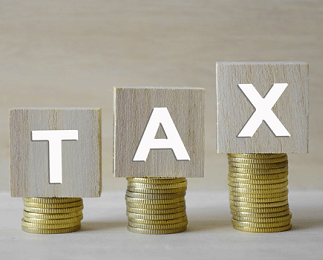Domestic reverse charge VAT for construction services – delay in implementation announced
Following pressure from the industry (including a letter signed by FIS in the Telegraph last weekend). HMRC have announced that the introduction of the domestic reverse charge for construction services will be delayed for a period of 5 months from 1 October 2020 until 1 March 2021.
A domestic reverse charge means the UK customer who gets supplies of construction services must account for the VAT due on these supplies on their VAT return, rather than the UK supplier. This removes the scope for fraudsters to steal the VAT due to HMRC and follows similar measures introduced in response to criminal threats for mobile telephones, computer chips, emissions allowances, gas and electricity, telecommunication services and renewable energy certificates.
The domestic reverse charge for building and construction services was originally planned to come into force on 1 October 2019, but it has already been delayed for a year in response to industry concerns.
In a statement published to day HMRC have reported: “To help these businesses overcome the effects that the coronavirus pandemic has had on them and give them more time to prepare, the introduction of the reverse charge has been delayed for a period of 5 months until 1 March 2021.”
In this statement they go on to report that HMRC remains committed to the introduction of the reverse charge and has put in place a robust compliance strategy for tackling fraud in the construction sector using tried and tested compliance tools.
In the intervening period, HMRC will continue to focus additional resource on identifying and tackling existing perpetrators of the fraud. It will also work closely with the sector to raise awareness and provide additional guidance and support to make sure all businesses will be ready for the new implementation date. The additional amendment to require end users and intermediary suppliers to notify their sub-contractors of their end user or intermediary supplier status in writing is designed to make sure both parties are clear whether the supply is excluded from the reverse charge. It reflects recommended advice published in HMRC guidance and brings certainty for sub-contractors as to the correct treatment for their supplies. If followed, it will remove a concern that HMRC may seek to challenge the reverse charge treatment where a business that qualified as an end user or intermediary supplier had not given any notification of their status.
In response to this statement Iain McIlwee, CEO of Finishes and Interiors Sector stated “On the one hand it is good news we have a delay, but I am still baffled by the unblinking need to carry on regardless. For me HMRC have found a way to solve a problem that just shifts burden away from HMRC and onto industry, create new admin and uncertainty. Government must realise that cashflow is critical in construction, whenever this is introduced it creates an air bubble for specialists – simply kicking the can down the road doesn’t make this go away. Draconian tax measures are not what is needed right now, we need to be learning from the COVID response and the successes and failures of schemes like CBILS in conjunction with procurement practices that support liquidity – if we don’t get this in place many more businesses will fail and Reverse Charge VAT may well be the tipping point”.
You can read in full the Revenue and Customs Brief 7 (2020): domestic reverse charge VAT for construction services – delay in implementation here
To access The FIS Implementing Reverse Charge VAT Toolkit – click here

